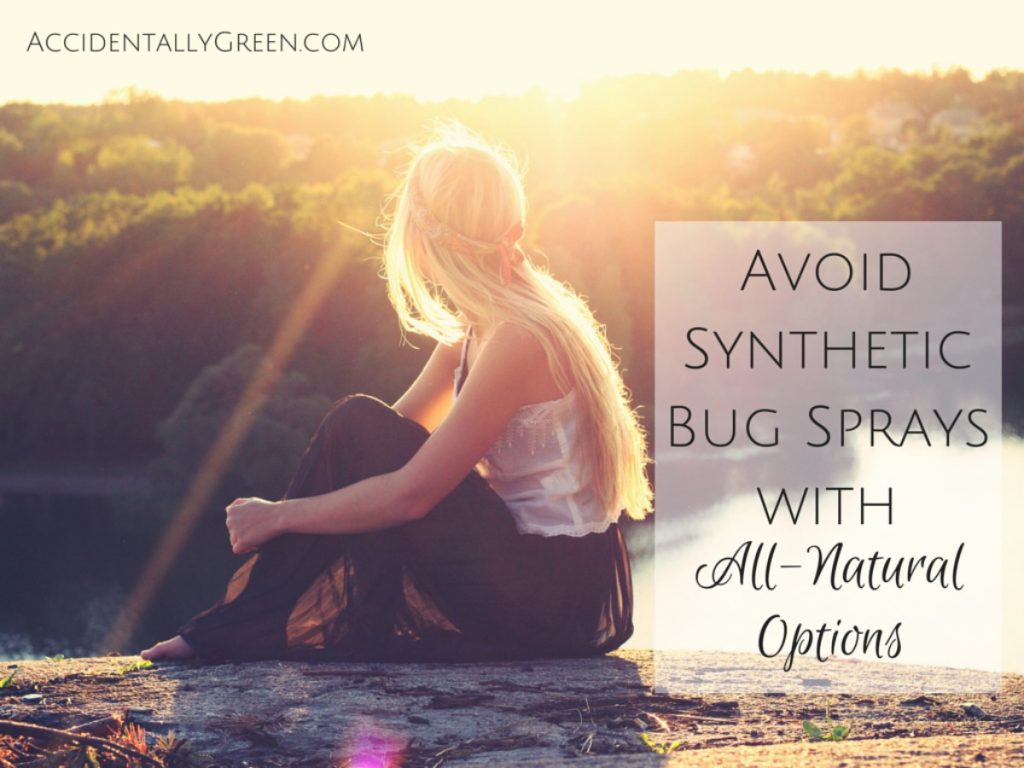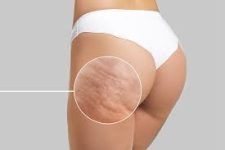Avoid Synthetic Bug Sprays with All-Natural Repellents • Accidentally Green
3 min read
Insect repellents are necessary, but safe choices are hard to find. Instead of synthetic bug sprays, I like all-natural repellents.
Disclosure: This post is brought to you by Butterbean Organics.
I still remember crawling into an orange pup tent as a child, excited for my first campout in my parents’ wooded backyard. I can hear the crickets and tree frogs in my memories … and smell the overpowering scents of a DEET-based mosquito spray. It was hard to get to sleep, partially because of the different sounds right outside my tent, but also because of the horrid fragrance.
I have to believe the synthetic deep woods repellent couldn’t be too great for my health.
Granted, insect repellents are necessary: they help keep mosquitoes and ticks away. According to the U.S. Centers for Disease Control and Prevention, ticks infect more than 30,000 Americans with Lyme disease each year and mosquitoes infect more than 2,000 Americans with West Nile virus.
The trouble with insect repellents, though, is that completely safe choices are hard to find. You want to make sure to use an effective product to keep bugs away. But at the same time, you don’t want to compromise safe standards.
In 2013, consumer watchdog organization the Environmental Working Group described this challenge:
The bad news: there’s no sure, completely safe way to prevent bug bites. All bug repellents have pros and cons.
The good news: some repellents are effective and relatively low in toxicity – provided you take precautions when using them, particularly on children.
The surprising news: among the four repellent chemicals EWG found to be top picks is DEET, which is widely used but much maligned. DEET’s safety profile is better than many people assume. Its effectiveness at preventing bites is approached by only a few other repellent ingredients.
DEET isn’t a perfect choice nor the only choice. But weighed against the consequences of Lyme disease and West Nile virus, we believe it is a reasonable one.
What if there’s another alternative?
Personally, I hate using synthetic products if a natural product is effective. In my own experience, I prefer to use insect repellents made out of essential oil blends … or even by making my own potent repellent with fresh basil leaves and hot water.
I know essential oils and certain plants repel mosquitoes. But sometimes, when I’m rushing around in the middle of summer fun, I just don’t feel like making my own repellent. (Even if I have all the ingredients. What can I say? Just because I can DIY doesn’t mean that I always do.)
I like when concerned companies use the same products I would choose to use … and then create a great product.
Like Butterbean Organics.
Started by a mama of five children, Butterbean Organics is a family-run company that creates and sells Bug-A-Boo bug spray and sunscreens made with safe and healthy ingredients.

Butterbean Organics’ Bug-A-Boo Spray includes:
- Neem oil – An ancient, non-toxic herbal oil used to repel mosquitoes. (The EPA approved cold-pressed Neem oil as a mosquito repellent in 2010; Butterbean Organics uses organic, cold-pressed Neem oil.) Neem oil is known to have antifungal, anti-inflammatory, antiseptic and antiviral properties.
- Castor oil – Known for natural anti-bacterial and anti-inflammatory properties.
- Ceylon citronella oil – All-natural insect repellent.
- Cedarwood oil – Can be used as an antiseptic, astringent, diuretic, expectorant, fungicidal, and insecticidal substance.
- Lemongrass oil – Known as an insect repellent.
- Peppermint oil – Popular for analagesic, antifungal, antimicrobial, antioxidant, and antiviral properties.
- Rosemary oil – Used as an antioxidant.
- White vinegar – Useful as an antiseptic, a help with circulation, and a great pH regulator.
- Witch hazel – Used as a carrier for the oil combination, witch hazel also has anti-inflammatory properties.
With this group of effective, natural ingredients, there’s no need to worry about exposing yourself to hazardous synthetic sprays. Butterbean Organics is natural, safe, effective – and their products are recommended by the Environmental Working Group and Cool Mom Picks.
You can buy your own Bug-A-Boo bug spray online or at certain U.S. retailers.

Disclosure: This post was sponsored by Butterbean Organics.
Latest posts by Hilary Kimes Bernstein (see all)







